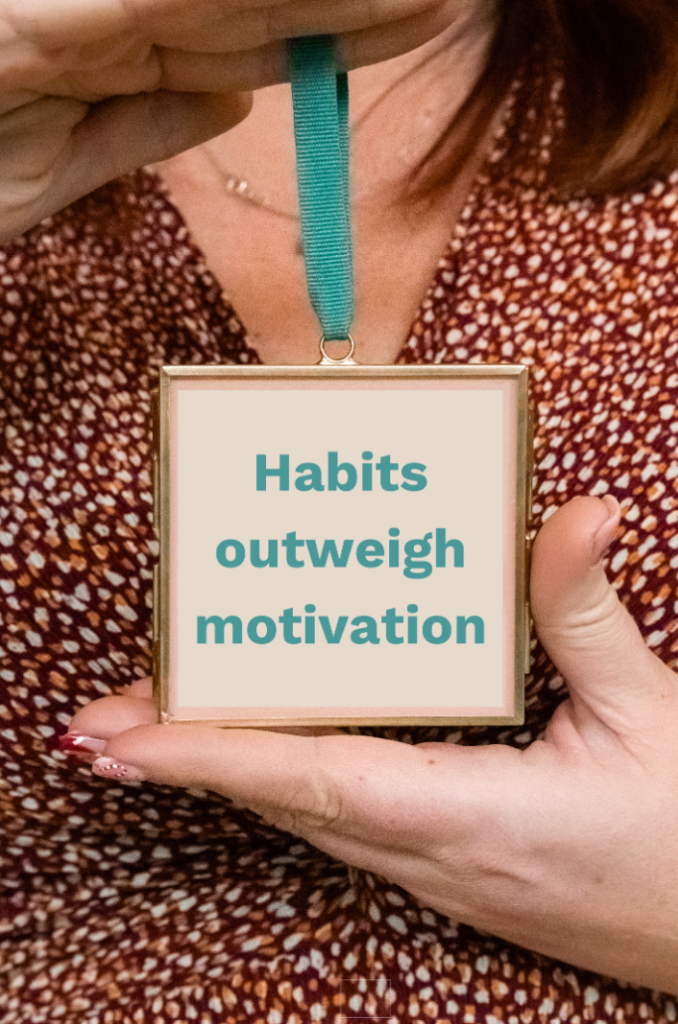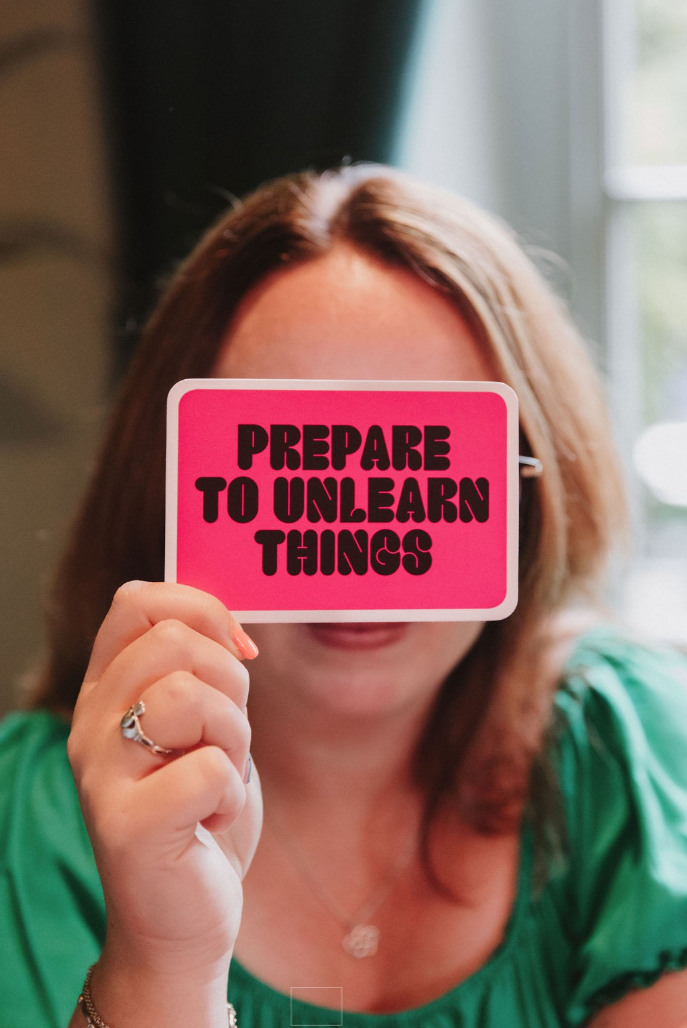Habits & Mental Health
I talk a lot with clients about the power of habits and how to best use our small daily routines to support our mental health. Sometimes I feel silly for asking about sleep hygiene, eating patterns, exercise and whether they ever see daylight! However, the reality is that our daily habits make up some of the key building blocks for our overall wellbeing. Establishing positive habits and a structured daily routine can create a strong foundation for mental health and happiness, as well as giving is us a place to return to, acting as an anchor when things get hard.

What do you even mean by habits?
In his fantastic book Atomic Habits (2018), James Clear defines a habit as “a behaviour that has been repeated enough times to be automatic”. Our brain thrives on patterns; it’s wired to find comfort in routine, so by forming good habits, we conserve energy for more critical tasks and reduce the chaos in our lives, enabling clearer thinking and a calmer mind.
Believe it or not, habits can also influence brain our chemistry! For instance, regular physical activity, a widely recommended habit, stimulates the production of endorphins—neurotransmitters that elevate mood and reduce stress. Similarly, mindfulness practices such as meditation have been shown to increase grey matter density in the brain, improving emotional regulation and reducing symptoms of anxiety and depression.
The Importance of a Daily Routine
Daily routines can positively contribute to your overall wellbeing in lots of ways, including by:
- Reducing Stress: Knowing what to expect from your day reduces the mental load of constant decision-making.
- Promoting Better Sleep: Consistent wake-up and sleep times help regulate your circadian rhythm, improving sleep quality.
- Increasing Productivity: Structured routines can help you accomplish more without feeling overwhelmed.
- Building Healthy Coping Mechanisms: Making self-care practices such as journaling or exercise part of your routine can help your overall mindset and wellbeing.
What habits can help my mental health?
Here’s a few ideas of the kinds of habits that influence our wellbeing:
- Mindfulness: Start your day with meditation and deep breathing, or build in time for gratitude every evening to help you overcome our inbuilt predisposition to focus on the negative.
- Physical Activity: You don’t need to take up marathon running – that activity can be dancing in your kitchen, swimming or even a 20-minute walk can significantly boost mood and energy levels.
- Balanced Nutrition: Regular meals with whole foods can support brain function and emotional stability. Nobody feels good on the back of a mid-afternoon sugar crash!
- Social Connection: Reach out to friends or loved ones, even briefly, to maintain meaningful relationships.
- Unplugging: Dedicate time to disconnect from screens and engage in activities like reading or other hobbies.

Building Lasting Habits
Establishing habits isn’t about overhauling your life overnight. Instead, focus on small, manageable changes. You might consider the following strategies:
- Start Small: Begin with one habit and gradually add more. For example, commit to drinking a glass of water each morning before tackling larger changes to your diet, or wake up five minutes earlier and work towards an hour earlier if that’s your goal.
- Be Consistent: Set a specific time and place for your new habit to create a sense of ritual. Plan it in like a date with yourself and give it the value that you deserve.
- Track Progress: Use a journal or app to monitor your consistency and celebrate milestones. You managed to drink 4 glasses of water a day for 5 days out of 7 – amazing! Celebrate and then set a goal for how to make it 6.
- Stay Flexible: Life is unpredictable. Allow yourself grace to adapt and restart when necessary.
A really key piece of advice I took from the Atomic Habits is that it is OK to miss a day of your habit. But if you keep missing days, then not completing those habits becomes a new habit in itself! And when we think about the power of our self-talk, do we really want to be telling ourselves that we’re someone who doesn’t show up for themselves?
If we don’t commit, we lose the benefits of commitment.
Now don’t get me wrong, I’m in no means perfect in terms of my own habits, but I do try and adopt a mindset of progression over perfection.
For example, I know that there’s no way I can show up to the gym 7 days a week, so I aim for 4. Running alongside this, I have a non-negotiable – as in I’ll move heaven and earth to get it done – 2 sessions a week. This obviously has some flex in terms of injury, time commitment or type of workout (ie: strength, cardio, yoga, at home HIIT, a long family walk…), but I absolutely commit to moving my body properly at least a couple of times a week.
Building Habits & Overcoming Barriers
To build a habit, you could follow a system such as that discussed in Atomic Habits.
Say you want to get into the habit of exercising:
- Make it obvious – for example, choose your gym clothes the night before an early class.
- Make it attractive – make it an outfit you feel amazing in.
- Make it easy – pack your bag, lay out your clothes and have your water bottle ready to go.
- Make it satisfying – pick an exercise you enjoy, not one you dread every second of. Hate cardio? Try weights, walking, yoga or swimming!
- Building habits and routines isn’t always easy, especially during periods of stress or change. Common barriers include lack of motivation, time constraints, and self-doubt. To overcome these challenges:
- Pair new habits with existing ones (e.g., practice gratitude while brushing your teeth).
- Enlist support from friends, family, accountability groups or trackers. Sometimes saying it out loud to someone else can make it much more likely to happen.
Remind yourself of your “why”—the deeper reason behind your effort. If you want to be able to chase your children, carry all your shopping on the tube or run a marathon, think about your end goal as well as the small steps to get there.
The Ripple Effect
The beauty of habits and routines is their ripple effect. A single positive change often leads to others. For example, committing to a regular bedtime might improve sleep, which enhances mood and productivity, motivating you to exercise or eat healthier. This compounding effect can significantly enhance our overall mental health over time.
Final Thoughts
While life is inherently unpredictable, habits and routines provide a sense of control and stability. They act as the scaffolding for mental well-being, offering a simple yet powerful way to navigate challenges and create a positive outlook.
By consciously building habits that support mental health, you create a lifestyle that not only enriches your days but also protects your emotional resilience for the long term.
Start small, start today; and watch how the simple act of repetition can build towards transformations in your mental health and overall quality of life.
If you want to think more about your habits in a safe and supportive space, or feel you’d benefit from an accountability partner to help you stay on track, get in touch to see how coaching could support you.
